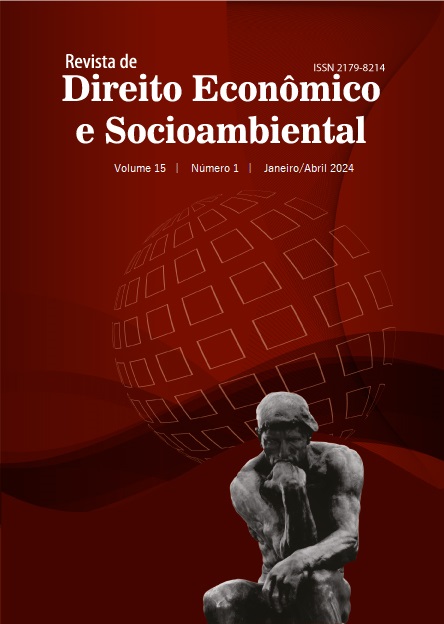Global climate emergency and the green new deal: considerations about climate justice and the contents of Paris Agreement
DOI:
https://doi.org/10.7213/revdireconsoc.v15i1.29909Keywords:
Paris Agreement; global climate emergency; green new deal; IPCC; climate justice.Abstract
Currently, the Paris Agreement is the document that represents the acknowledge of nations regarding the global climate emergency. Recent reports published by the Intergovernmental Panel on Climate Change - IPCC warn of the imminent crisis in the case of maintenance of the patterns of anthropic activities. In this context, the programs and mechanisms developed so far to pursue an increase in global average temperature below 1.5°C compared to pre-industrial levels seems to be ineffective. This work, the result of bibliographic and document research, with the application of the hypothetical-deductive method, favors the disciplinary scope of international law in dialogue with socio-environmental studies and ecology to focus on climate justice as a demand and prerogative of the new generations. The hypotheses, at the end verified, proceed in the sense of affirming that: 1) results that fully contemplate the objectives pursued by the UNFCCC have not yet been produced; 2) to address the impacts of the climate emergency, the assumptions of climate justice and the provisions of the Paris Agreement represent an important impetus for an essential global Green New Deal. The conclusion emphasizes that facing the global climate emergency involves a multidisciplinary approach.
Downloads
Downloads
Published
How to Cite
Issue
Section
License
Copyright (c) 2024 Artur Bernardo Milchert, Milena Petters Melo

This work is licensed under a Creative Commons Attribution 4.0 International License.
Authors who publish in this Journal agree to the following terms:
- Authors retain copyright and grant the Journal of Economic and Socio-Environmental Law the right of first publication with the article simultaneously licensed under the Creative Commons - Attribution 4.0 International which allows sharing the work with recognition of the authors and its initial publication in this Journal.
- Authors are able to take on additional contracts separately, for non-exclusive distribution of the version of the paper published in this Journal (eg.: publishing in institutional repository or as a book), with a recognition of its initial publication in this Journal.
- Authors are allowed and encouraged to publish their work online (eg.: in institutional repositories or on their personal website) at any point before or during the submission process, as it can lead to productive exchanges, as well as increase the impact and the citation of the published work (see the Effect of Open Access).





















